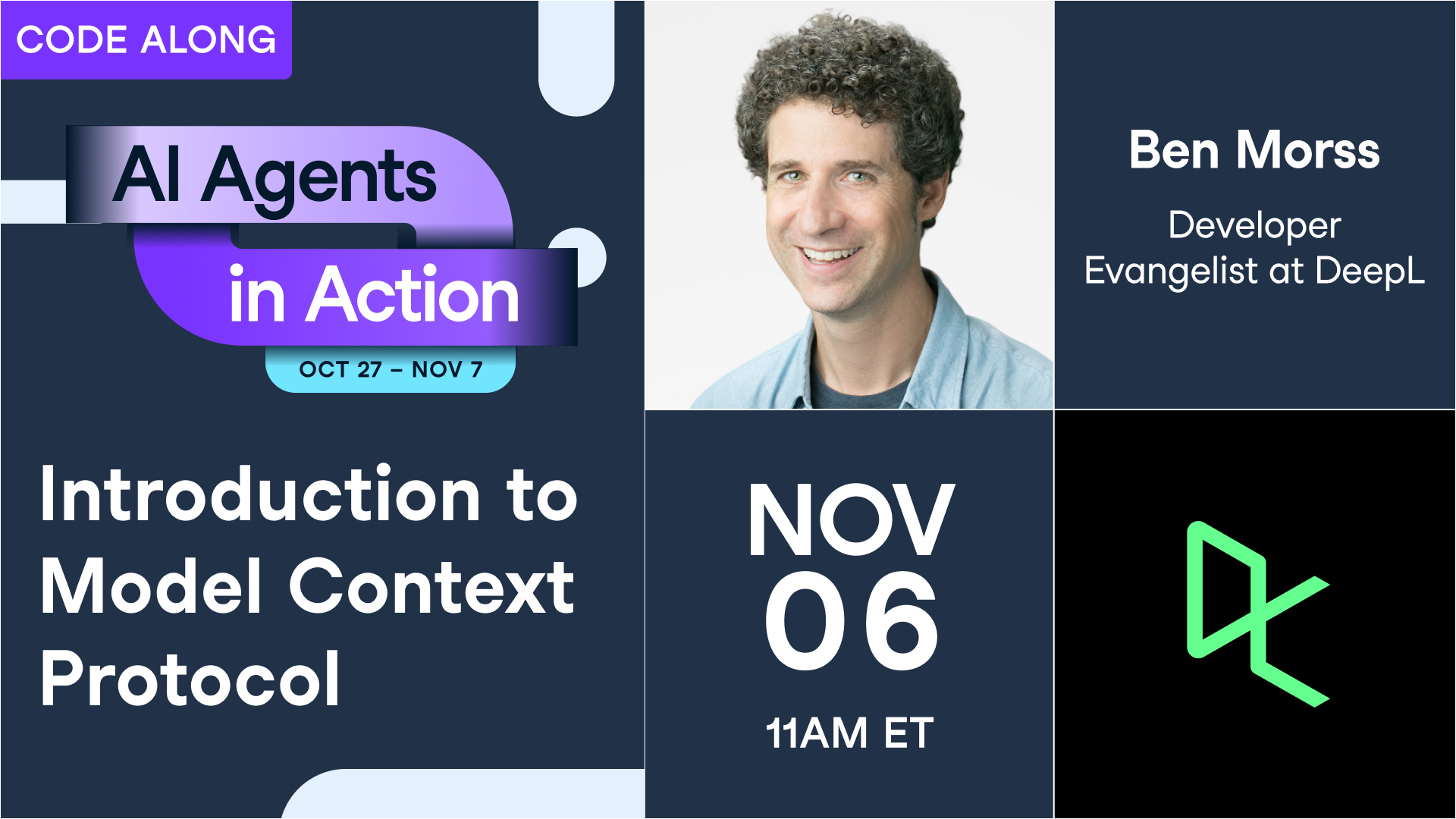Related
white paper
A Practical Guide to AI Agents by Snowflake
Courtesy of Snowflake, this e-book reveals how agentic AI is transforming the way we work, from automating complex workflows to accelerating decision-making at scale.webinar
Agentic Document Processing with LlamaCloud: Exploring the Future of Context Aware RAG & AI Agents
Join host, Biswaroop Palit, VP of Products at LlamaIndex, as he shares how the latest advancements in agentic document processing are unlocking a new era of better RAG and intelligent, context-aware AI agents.webinar
Introduction to Creating AI Agents in Python (Part 1: Concepts)
Richmond Alake, Staff Developer Advocate for AI and ML at MongoDB, walks you through the basics of creating AI agents in Python.webinar
Build Your First AI Agent with n8n
Nadia Privalikhina, Founder at AI Insiders, walks you through building your first AI agent using n8n.webinar
Introduction to Microsoft Copilot
In this session, two Microsoft experts - Angie Rudduck, a Senior Content Developer for Data & AI, and Shannon Lindsay, Senior Program Manager for Power BI - teach you how to get started using Copilot.webinar

